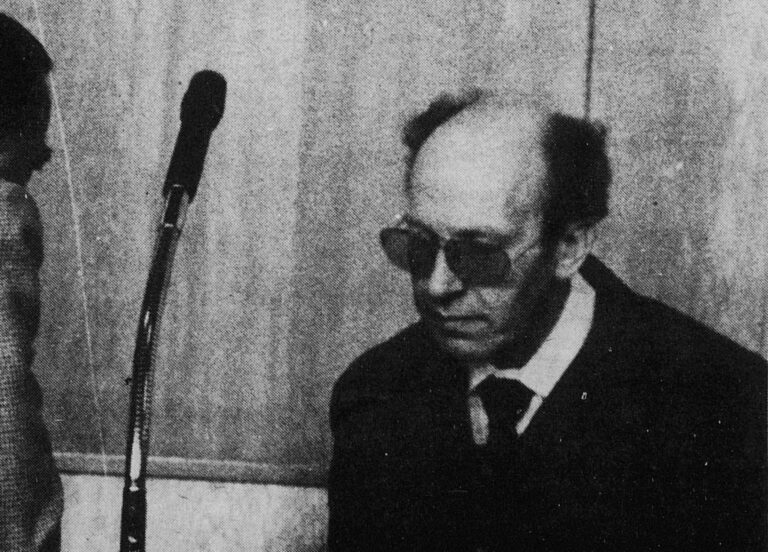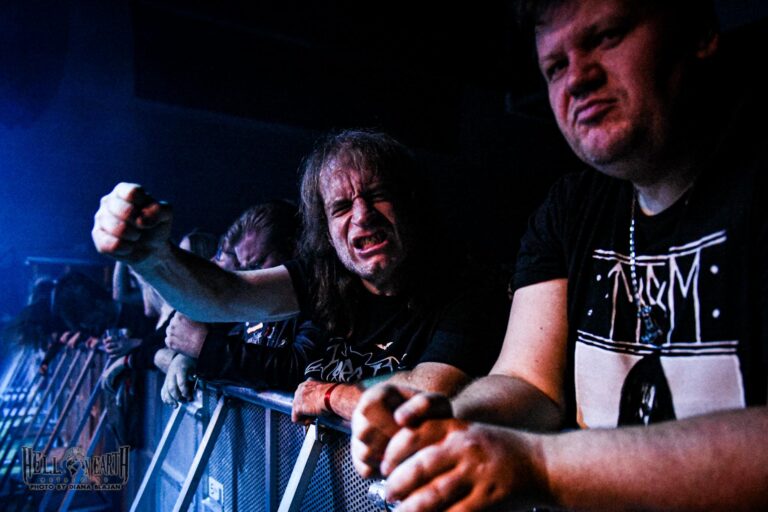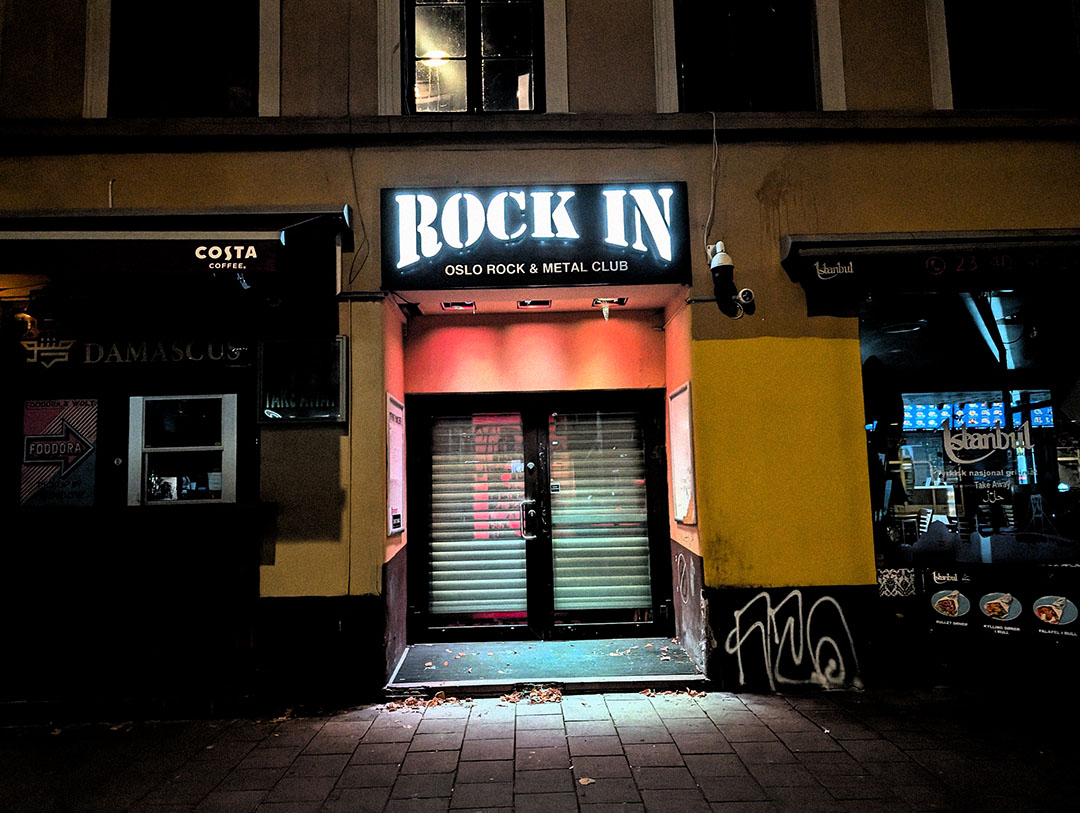
Rock In was founded in 2000 on Storgata in Oslo by drummer Willy Bendiksen and his wife Beate. Since then, the pub has hosted concerts by bands such as Testament, U.D.O., In Flames, Carpathian Forest and many more.
What was supposed to become a grand 25th anniversary celebration came to an abrupt end when former owner Erman Atabay suddenly stepped down following an ownership dispute. This led several employees to show their support for Erman by resigning. It’s worth noting that those who took over and forced Atabay out had nothing to do with the metal scene – most likely opportunists wanting to take control of a well-run and profitable venue.
Read also:
Staff Members Quit Legendary Norwegian Metal Pub Rock In After a Dispute
The Hostile Takeover of Oslo Metal Club Rock In
As a result, the regulars boycotted the place, despite new general manager Maryam Hashemi assuring everyone that “Rock In is not closing – we will continue as before!” Among the new owners and backers were Mohsen Khanmoradi Gargari and Sadiq Sarboland, operating through the company Noor Invest.
Despite continued updates on social media claiming good crowds and a lively atmosphere, the reality was very different. Rock In even announced two planned name changes during this period – one to Grønland Jern & Metall and another to Fot.
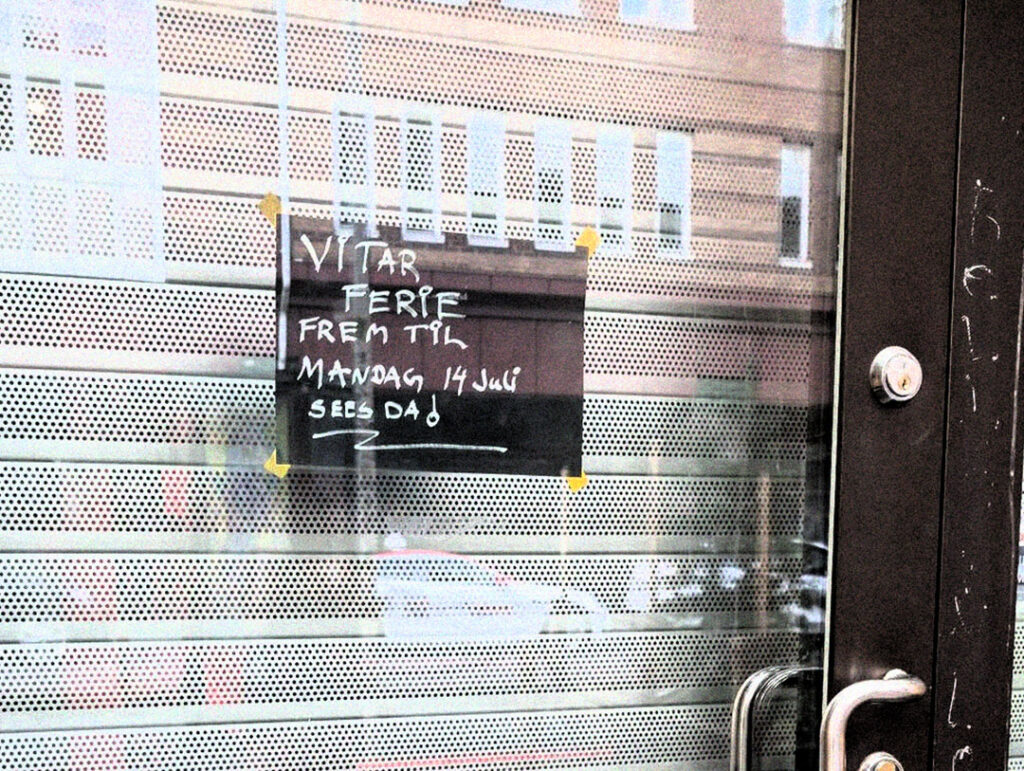
Visitors stopped coming, and employees reportedly didn’t even receive their salaries, which led them to take legal action against Noor Invest. In July, a note was taped to the door of Rock In stating they were “on vacation” and would reopen on July 14. That never happened, and the venue has remained closed ever since.
On 16 October, the Brønnøysund Register Centre updated its records showing that Noor Invest, and thereby Rock In, had been declared bankrupt. A separate bankruptcy estate has now been established under the name NOOR INVEST AS KONKURSBO (org. no. 836 390 342), with attorney Frank Charles Aase appointed as trustee.
In principle, an interested buyer can negotiate with the trustee and acquire all or parts of the business or its assets. This means:
• The bankruptcy estate owns all assets and rights after the company is declared bankrupt.
• The trustee has the authority to sell property, rights, inventory, equipment, licenses, trademarks, or any other part of the business.
• The buyer must make an agreement with the trustee, and the sale must be approved by the court and creditors in accordance with settlement terms.
• It does not automatically mean that “the company as it was” continues — new ownership must assess what follows: lease agreements, debt, permits, staff, etc.
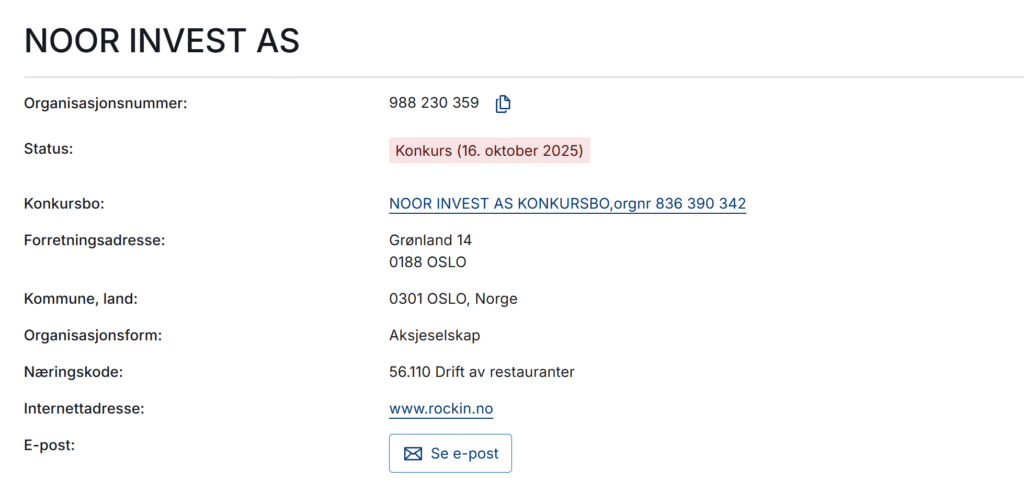
Whether anyone chooses to buy the Rock In estate remains to be seen. But the opportunity is there.
Practical implications if someone takes over:
• The alcohol license does not transfer through bankruptcy. Any new owner must apply for new serving and liquor licenses through Oslo municipality.
• The lease agreement also does not automatically transfer. The estate usually does not assume it, and any transfer requires the landlord’s consent, which can be denied on “reasonable grounds.”
That 25 years of history now seems lost is genuinely sad. But for many regulars, Rock In without Erman Atabay and his crew was unthinkable — especially when outsiders with no connection to the metal community took over in a way that can hardly be called honourable.
Another question is whether there’s even much of any value left in the estate at this point.

